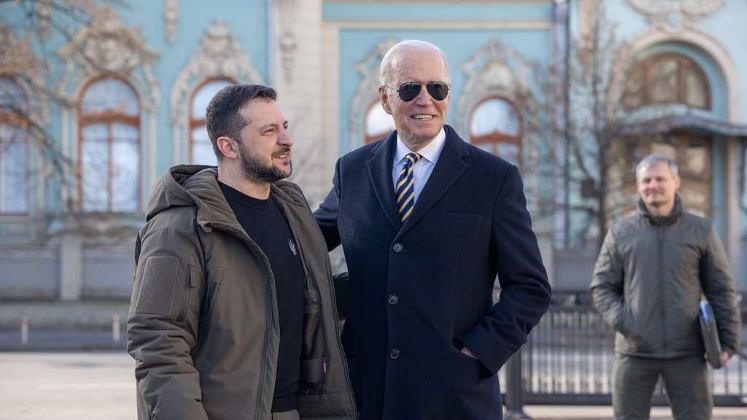Game theory models are ubiquitous in economics, common in political science, and increasingly used in psychology and sociology; in evolutionary biology, they offer compelling explanations for competition in nature. But game theory has been only sporadically applied to the humanities; indeed, we almost never associate mathematical calculations of strategic choice with the worlds of literature, history, and philosophy. Steven J. Brams attempts just that in his recent book, but doesn’t quite connect the two convincingly, finds Remy Smida.
 Game Theory and the Humanities: Bridging Two Worlds. Steven J. Brams. MIT Press. September 2012.
Game Theory and the Humanities: Bridging Two Worlds. Steven J. Brams. MIT Press. September 2012.
For unfamiliar readers, game theory is a mathematical method of decision-making, which is used to analyse optimal choices. When one wants to counter someone else’s actions, many find that the understanding of strategic interactions through game theory can be truly fascinating.
Steven J. Brams, professor of Politics at the University of New York, is a game theorist and political scientist who has analysed and published on game theory for over 30 years. He is well known for being the co-inventor of the Adjusted Winner algorithm for fair division. Brams has also worked with the idea that game theory is not only useful to analyse politics, psychology or economics but can also be transferred to many other subjects in order to gain a deeper understanding. For instance, in his book Biblical Games: Game Theory and the Hebrew Bible, he shows how game theory can be used to analyse religious texts, such as the Bible.
In his latest book Game Theory and the Humanities, he demonstrates how game theory can be utilized to interpret a whole variety of literature, “whether they be historical documents, fictional accounts, or some mixture, such as the Bible”. The book intends to apply game theory to philosophy, religion, law, history and literature, “bridging two worlds” which often speak little to each other.
In chapter three, Brams examines the rational choice to believe in God. There is an outcome for each action one person chooses. Readers will learn what the trade-off is, if someone wants to believe in God but God prefers not to reveal himself. Brams uses concepts such as the Nash equilibrium to calculate the pay-off of each possible action. That is, no one can do better by choosing a different strategy. “Game theory seems well suited for analysing this relationship, though some may question the seemingly impious view that God plays games with us”. While this chapter explains the behaviour of two players in a theoretical way, the author also provides theological concepts and direct interpretations of the Bible. He, for instance, explains why God can be seen as a person that makes choices as such. “ He [God] pursued this goal [wants people to believe in its existence] with a vengeance not only by severely punishing those who did not adhere to His commands and precepts but also by bestowing rewards on the faithful who demonstrated their unswerving belief through good deeds and sacrifices”. This type of interpretation allows the author to construct games between two rational actors, a person and God.
Democracy is seen, in chapter 5, as a mean to resolve conflict. Modern democracies transform conflicts into games by presenting a choice to its electorate. However, Brams gives an alternative method to understand the mechanism of a democratic system. This chapter will give you an incentive to see elections and referendum from a different angle. An important aspect of this chapter is the focus on the cost of each choice and how voters respond to these costs and benefits by acting strategically. Game theory does not only provide a method to see what voters’ preference is, but also why, “it is always rational for voters to vote for the cooperative outcome”. However, this model has its assumptions and Brams recognizes that corruption or lack of trust can negatively affect voter’s willingness to cooperate.
While critics argue that mathematic theories cannot capture feelings such as anger and frustration, the author shows their implicitness in chapter 7. According to Brams, frustration and anger are “compatible with acting rationally”. Depending on the actions of others, a person will react by expressing an emotion. Frustration, for example, is a normal reaction to a person’s inability to control an unsatisfied situation caused by others. Consequently, desperate choices are made even though a better strategy exists. Brams analyses Aristophanes’ most popular play, Lysistrata, focusing on the frustration of women in ancient Greece, when their husbands go to war. The women intend to withhold sexual privileges from their husbands as a strategy to compel peace negotiation. In this chapter, the author successfully links mathematical theory with emotion, using a new and modern theoretical explanation.
Even though the explanatory model is well argued, basic notions of game theory are still needed to fully appreciate this book. Therefore it appears paradoxical to aim at bringing “two Worlds together” while not targeting a larger audience. I would still highly recommend this book to those already familiar with game theory, as it offers the chance to go beyond its standard applications.
——————————————————————————————-
Remy Smida is a MPA candidate at the London School of Economics and Political Science. His expertise is in Economic Growth and Stabilization Governance in North Africa and the Middle East. He is also part of a research group on corruption and will present, at the LKY Institute in Singapore, a new policy implementation to counter corrupt acts in passport offices in developing countries. He also holds a B.A. in International Studies from the University of Montreal. Read more reviews by Remy.







